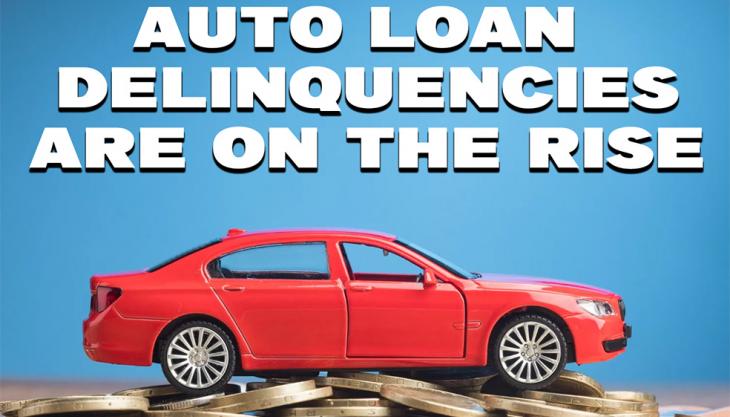The Crisis of Automotive Affordability: Why US Auto Loan Delinquencies are Soaring
Submitted by Law Office Blogger on Fri, 10/24/2025 - 1:19pm

Auto loan delinquencies in the United States have surged to levels that rival, and in some credit segments exceed, the peaks of the Great Recession, signaling a deepening crisis of affordability driven by the confluence of unprecedented vehicle costs, high interest rates, and crippling household financial strain. For Americans, who rely heavily on personal transportation for their livelihood, auto debt often serves as a canary in the coal mine for broader economic distress. This dramatic rise in missed payments is not a sudden anomaly but the inevitable result of three structural pressures: the persistent inflation of vehicle prices, the compounding effect of higher borrowing costs, and the stretching of loan terms that leaves borrowers vulnerable to default.
The primary engine driving higher delinquency rates is the structural surge in vehicle prices and subsequent loan size. The average price of a new vehicle has climbed to nearly $50,000, while the average used car price also remains dramatically above pre-pandemic levels. This inflation, spurred by lingering supply-chain issues and a marketplace favoring larger, higher-margin SUVs and trucks, has forced consumers to finance larger sums than ever before. For a household already managing inflationary pressures across groceries and housing, this translates directly into an overwhelming increase in the average monthly car payment, which now exceeds $750 for new vehicles. Since the amount a consumer borrows is fundamentally tied to the price of the asset, these ballooning loan amounts create a dangerously high barrier to entry for transportation, making default a highly probable outcome when a minor financial shock occurs.
Compounding the problem of increased principal amounts is the multiplicative effect of elevated interest rates. In response to nationwide inflation, the Federal Reserve's rate hikes have translated into significantly higher Annual Percentage Rates (APRs) across the consumer credit market. This is particularly devastating for borrowers with subprime or near-prime credit scores, who already face interest rates upward of 15% to 20% on used car loans. When a large loan balance (driven by high car prices) is financed at a high interest rate, the monthly payment skyrockets, pushing monthly commitments into the unsustainable territory of $1,000 or more for nearly one in five new car buyers. Moreover, lenders have extended loan terms to record lengths—often six or seven years—to mask the true size of these monthly payments, which increases the total interest paid over the life of the loan and leaves many borrowers "underwater" (owing more than the car is worth) shortly after driving the car off the lot.
Debts Hurt! Got debt? Need help? Get started below!
Serving All of North Carolina
- Bankruptcy Attorneys Raleigh NC (North)
- Bankruptcy Attorney Fayetteville NC
- Bankruptcy Attorney Durham NC
- Bankruptcy Attorneys Wilson NC
- Bankruptcy Attorneys Greensboro NC
- Bankruptcy Attorneys Southport NC
- Bankruptcy Attorneys Wilmington NC
Bankruptcy Attorneys Raleigh NC (North)
6616 Six Forks Rd #203 Raleigh, NC 27615 North Carolina
Tel: (919) 847-9750

Bankruptcy Attorney Fayetteville NC
2711 Breezewood Ave Fayetteville, NC 28303 North Carolina
Tel: (910) 323-2972

Bankruptcy Attorney Durham NC
1738 Hillandale Rd Suite D Durham, NC 27705 North Carolina
Tel: (919) 286-1695


Bankruptcy Attorneys Greensboro NC
2100 W Cornwallis Dr. STE O Greensboro, NC 27408 North Carolina
Tel: (336) 542-5993

Bankruptcy Attorneys Southport NC
116 N Howe St. Suite A Southport, NC 28461 North Carolina
Tel: (910) 218-8682

Bankruptcy Attorneys Wilmington NC
116 N. Howe Street, Suite A Southport, NC 28461 North Carolina
Tel: (910) 447-2987
